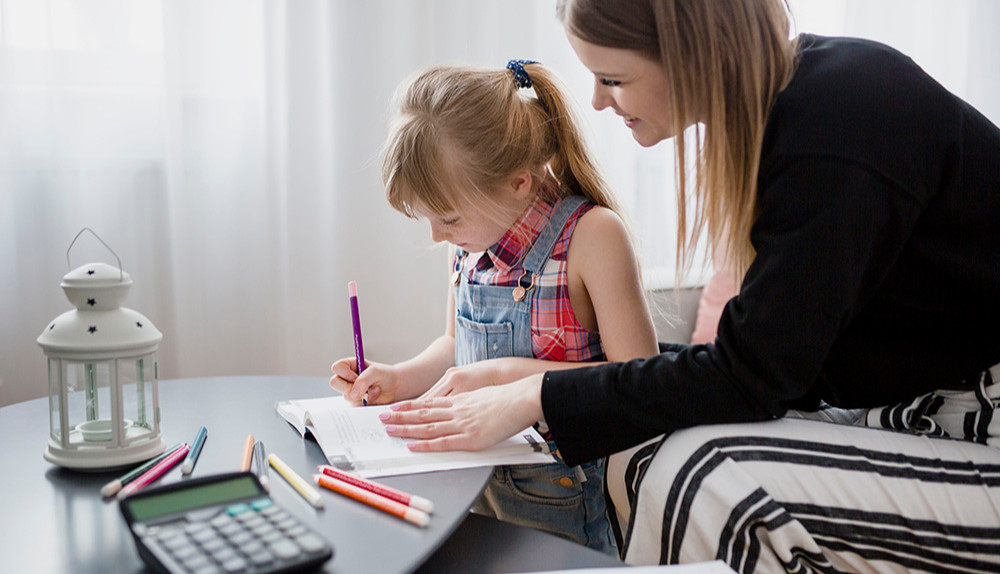Self-support: how to teach your child to accept his mistakes

Even adults often get discouraged and blame themselves when they fail. In children, the feeling of guilt is many times stronger. But this can be helped by teaching your child to love and accept themselves and common core workbooks. Self-support – a kind attitude towards yourself when things go wrong, it helps children to overcome difficulties positively and not to despair.
What is self-support and why children need it
Self-support is being kind to yourself, even when things aren’t going the way you expect. It is being aware of your feelings and treating yourself with the same warmth, care, and understanding as you do your loved ones. It’s also about recognizing that struggles and problems are part of life and that everyone goes through such trials. Self-support helps children cope more easily with setbacks, mistakes, and difficult times. For example, if your child finishes last in a race, he may be disappointed. But self-compassion will help him feel good about himself and deal positively with his disappointment. The child can say to himself, “I’m disappointed, but I’m glad I tried my best,” or “I’ll try again next time.”
When children learn to treat themselves with empathy, they become happier, have more confidence and self-esteem, are more likely to try something new or try again when something doesn’t work the first time, have more resilience, so can “come around” during or after difficult times.
Self-support and compound sentence examples helps children do better in school and develop new skills in areas such as sports, music, and dance. In addition, they get along well with others and are more likely to help other children.
Self-support and strong parent-child relationships
Your warmth, support and care help your child feel safe – in this case he is more likely to try something new and not afraid to face problems. Also, the child will be more forgiving when things suddenly go wrong, because he knows that you will not judge or criticize him. You can build relationships that help children feel safe and, in many ways, foster compassion for themselves. Here are some ideas.
Spend time playing with your child and encouraging their interests – like building a constructor or solving puzzles, reading together. This is a subconscious message – you are important to me. Explain to your child that it’s okay to have strong feelings – sadness, frustration, or anger. For example, the baby may be frustrated with a drawing and https://argoprep.com/blog/k8/i-hate-math-why-some-students-struggle-with-numbers/, so he or she tears it up. In that case, you can say, “I can see that you are upset. It’s okay. Things don’t always work out the way we want them to.”
Say goodbye to children. If a child accidentally drops and breaks your favorite cup, you can say, “I’m sorry it broke, but that’s okay – accidents happen.” Think of ways to show kindness in the family. For example, your family routine might allow your child a break from doing dishes on busy school nights. Or as one family ritual, you can take turns picking out favorite desserts for Sunday nights.
Praise your child when he shows compassion for himself. This will further strengthen his confidence in himself. For example, you might say, “I know you’re upset that you didn’t get an award. But I’m proud that you said you would try again.”
Building children’s self-confidence
Step 1.
Pause and notice when your child is angry, frustrated, or disappointed because things didn’t go the way he wanted and he’s being hard on himself. For example, a craft didn’t turn out the way he had hoped, or he didn’t get picked for the school choir. Maybe he feels bad because he had a fight with a friend or hurt him. You may hear your child say things like, “I’m the worst,” “I’m hopeless,” or “I’ll never make it.” Or he may be silent and look upset at all.
Step 2.
Let your child know that it’s okay to face challenges and that everyone makes mistakes. It’s also perfectly normal to feel sad, angry, and frustrated, but you can’t say bad things about yourself. For example, you might say, “I’d be disappointed, too, if I hadn’t scored a goal. But that doesn’t make you a loser.” Or, if your child wasn’t invited to a birthday party, remind him or her that it doesn’t mean there’s anything wrong with him or her. We can’t control other people’s choices, but we can make an extra effort to take care of ourselves.
If a child is too self-critical
Self-criticism is the opposite of self-support. Self-criticism is harsh self-condemnation or bad self-talk. If a child is very self-critical, it can increase their stress, affect their mental health, and decrease their self-confidence. Very self-critical children often say very harsh and unpleasant things about themselves. If you are concerned that your child’s self-critical thinking is affecting their mental health, it is worth seeking advice from a child psychologist.